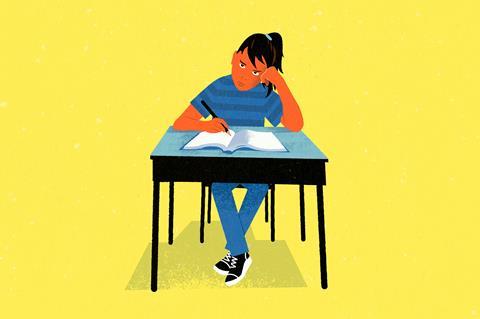If students are at ease, they’re not necessarily learning much
How much do your students enjoy your lessons? How much should they enjoy your lessons? I think most teachers would associate enjoyment with engagement, and engagement with learning. This seems intuitive and natural – students who enjoy a subject will spend more time with it, will study it more, and are more likely to learn more and achieve higher grades.

But if modern cognitive psychology teaches us anything, it’s that our intuitions about motivation are usually wrong.
A few studies have looked into the correlation between student satisfaction and learning, and they all come to the same conclusion: students like their teachers more when they learn less.
One study looked at undergraduates at Bocconi University, a prestigious Italian business school. The study compared student evaluations of teachers with the performance of those students in subsequent compulsory courses. The researchers found ‘teachers who are more effective in promoting future performance receive the worst evaluations from their students’. Their analysis indicated that students rank more favourably teachers that teach to the test.
All this data points to a conclusion that is perhaps less surprising than these counterintuitive results: while in the midst of the learning process, students don’t have an awareness of the value of the material they are learning. And so, without a good basis for evaluation, they simply feel more positive when they feel more comfortable.
Avoiding difficulty
A new intervention published in Chemistry Education Research and Practice has picked up on students’ preference for avoiding difficulty and focused on encouraging student well-being and capability by challenging students to think in new ways, by making them uncomfortable.
The researchers ran an extracurricular non-compulsory programme for second year undergraduate chemistry students. The programme revolved around philosophical discussion of chemistry concepts and principles – identifying assumptions and promoting collective reflection. Rather than filling out evaluation forms, participating students were interviewed about their experiences and evaluated against a framework of capabilities. The study found that the philosophical discussions created a safe space for the discomfort necessary for learning.
We don’t know yet if this intervention has made a lasting impact on the learning of the participating students. But it does provide one possible model for challenging learners. Though they might like you a little less.









No comments yet